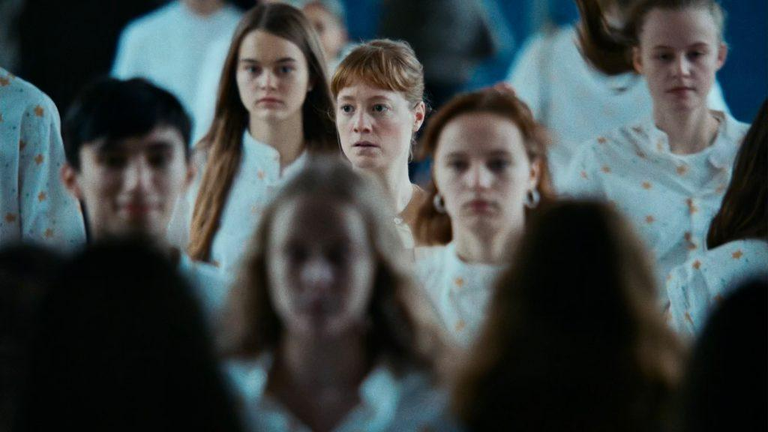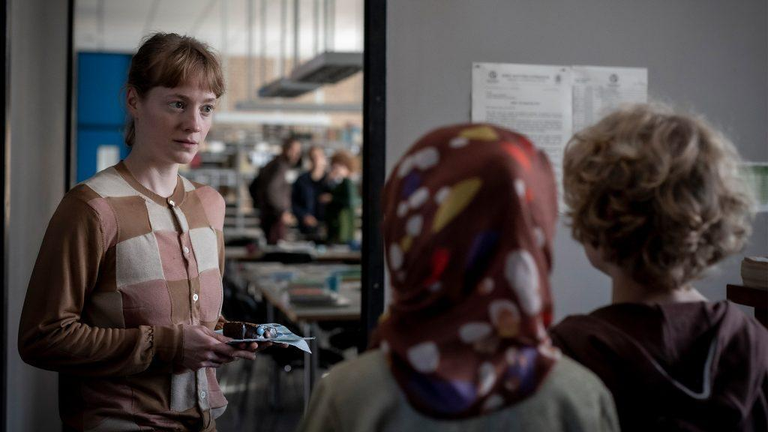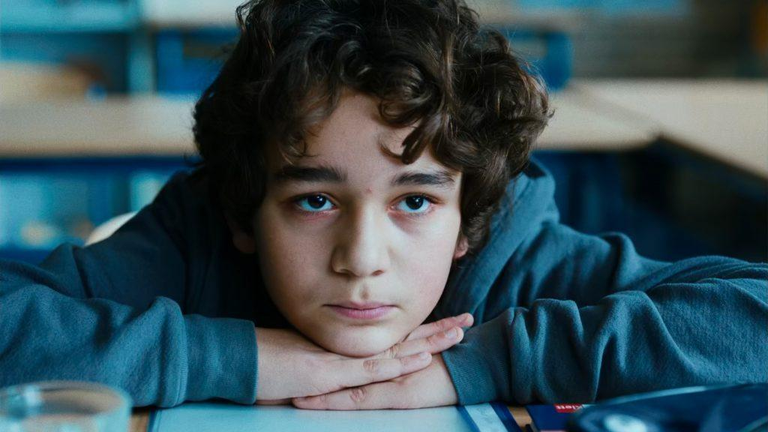Película "Sala de Profesores" - Cuando buscar ser justo, puede llegar a ser injusto.

Alerta Spoilers ⚠️
Me gustan las películas que en sus tramas sencillas cuentan historias complejas, con temas profundos que nos invitan a cuestionar asuntos morales, legales, éticos. Incluso, que nos invitan a pensar qué haríamos nosotros si estuviésemos en los zapatos de tal o cual personaje.
La película "Sala de Profesores", nominada como Mejor Película Internacional en los Oscars 2024, me dejó sensibilizada en lo que a ser docente respecta. Es un rol que demanda habilidades específicas, además de la capacidad de enseñanza, como empatía, negociación, trabajo bajo presión, resolución de conflictos... Implica, no solo saber cómo manejar un grupo de clases, sino también entender que este se compone de personas, en este caso adolescentes, con sus respectivas personalidades, necesidades, problemas. Pero el rol del educador es solo la punta del iceberg, pues la película nos llevará, junto a la protagonista, hasta un lugar de aturdimiento, acusaciones y recriminaciones, que nos hará dudar hasta de nosotros mismos.
Carla Novak es la profe nueva de matemáticas y educación física, pero es un rol que desde el principio vemos asume desde la comprensión y la empatía con los niños, no solo delante de estos sino también delante de sus colegas, quienes adoptan un rol más bien autoritario, resolutivo. Ocurre un robo durante las jornadas de clases y el responsable parece ser un alumno de ella. Desde aquí podemos empezar a cuestionarnos las medidas que toma la escuela, las cuales crean un ambiente de tensión y desconfianza entre todos, reflejando, además, racismo y abuso de las relaciones de poder.
Sin embargo, Carla adopta un rol "justiciero" que le pasará factura más adelante. Ve a alguien robarse unas monedas en el salón de profesores y toma la decisión de poner una "carnada" en su billetera y grabar sin consentimiento desde su computador, para tener una prueba del ladrón. En video queda registrada una camisa blanca estampada, que casualmente es idéntica a la que utiliza ese día una de las secretarias de la institución, que también es la mamá de Oskar, estudiante de la clase de Novak. Al enfrentarla esta se niega, y una vez es alertada de que se tomarán medidas no vuelve a regresar a la institución. Oskar hace lo que puede para defender a su madre y para que todos entiendan que ella no fue la responsable. Carla le cree, pero ya es un poco tarde, el río de la acusación sigue su cauce. Empezamos a hacernos preguntas sobre la verdad y la mentira, la justicia y las injusticias. Sobre todo, ¿en quién creer?

A continuación y como efecto dominó, ocurrirán diferentes situaciones que alterarán tanto a los estudiantes de la clase de Novak, a los padres de estos y a sus colegas. Ella intenta mantener la calma, pero la situación cada vez está más en su contra. A pesar de esto, es firme en proteger, defender y enseñarle a sus estudiantes. Y se hace de todas las herramientas pedagógicas para esto, pero recibe difamación de parte de los chicos, odio de los colegas, en resumen, violencia, que la llevan a un punto de desesperación e indefensión que atraviesa las pantallas. ¿Hasta que punto ser "el bueno" de un sistema dañado no se convierte en un daño hacia ti mismo?

En medio del conflicto, es silencio de Oskar, que es también rebeldía, protesta y negativa a aceptar las injusticias, es casi un alivio para Carla Novak. Y allí ella lo acompaña, y se llegan a entender, y pienso, a perdonar, en ese lugar al que ambos llegaron. El final es abierto, para que nosotros decidamos.
Las imágenes fueron obtenidas de filmaffinity

Spoiler Alert ⚠️
I like movies that in their simple plots tell complex stories, with deep themes that invite us to question moral, legal, ethical issues. Even, that invite us to think what we would do if we were in the shoes of this or that character.
The film "Teachers' Lounge", nominated for Best International Film at the Oscars 2024, left me sensitized as far as being a teacher is concerned. It is a role that demands specific skills, in addition to teaching ability, such as empathy, negotiation, working under pressure, conflict resolution.... It involves not only knowing how to manage a class group, but also understanding that it is made up of people, in this case adolescents, with their respective personalities, needs and problems. But the role of the educator is only the tip of the iceberg, because the film will take us, along with the protagonist, to a place of bewilderment, accusations and recriminations, which will make us doubt even ourselves.
Carla Novak is the new math and physical education teacher, but it is a role that from the beginning we see her assume from the understanding and empathy with the children, not only in front of them but also in front of her colleagues, who adopt a rather authoritarian, resolute role. A theft occurs during the school day and the culprit seems to be one of her students. From here we can begin to question the measures taken by the school, which create an atmosphere of tension and distrust among all, reflecting, in addition, racism and abuse of power relations.
However, Carla adopts a "vigilante" role that will take its toll on her later on. She sees someone stealing some coins in the teachers' lounge and decides to put a "bait" in her wallet and record without consent from her computer, in order to have proof of the thief. The video shows a printed white shirt, which happens to be identical to the one worn that day by one of the school's secretaries, who is also the mother of Oskar, a student in Novak's class. When confronted, she refuses, and once she is alerted that action will be taken, she does not return to the institution. Oskar does what he can to defend his mother and to make everyone understand that she was not responsible. Carla believes him, but it is a little late, the river of accusation continues to flow. We begin to ask ourselves questions about truth and lies, justice and injustice. Above all, who to believe in?

Then, as a domino effect, different situations occur that upset the students in Novak's class, their parents and her colleagues. She tries to remain calm, but the situation is increasingly turning against her. Despite this, she is adamant about protecting, defending and teaching her students. And she uses all the pedagogical tools to do so, but she receives defamation from the kids, hatred from colleagues, in short, violence, which brings her to a point of despair and helplessness that crosses the screens. To what extent does being "the good guy" of a damaged system not become a harm to yourself?

In the midst of the conflict, Oskar's silence, which is also rebellion, protest and refusal to accept injustice, is almost a relief for Carla Novak. And there she accompanies him, and they come to understand each other, and I think, to forgive, in that place where they both arrived. The ending is open-ended, for us to decide.
Images were obtained from filmaffinity
Posted Using InLeo Alpha